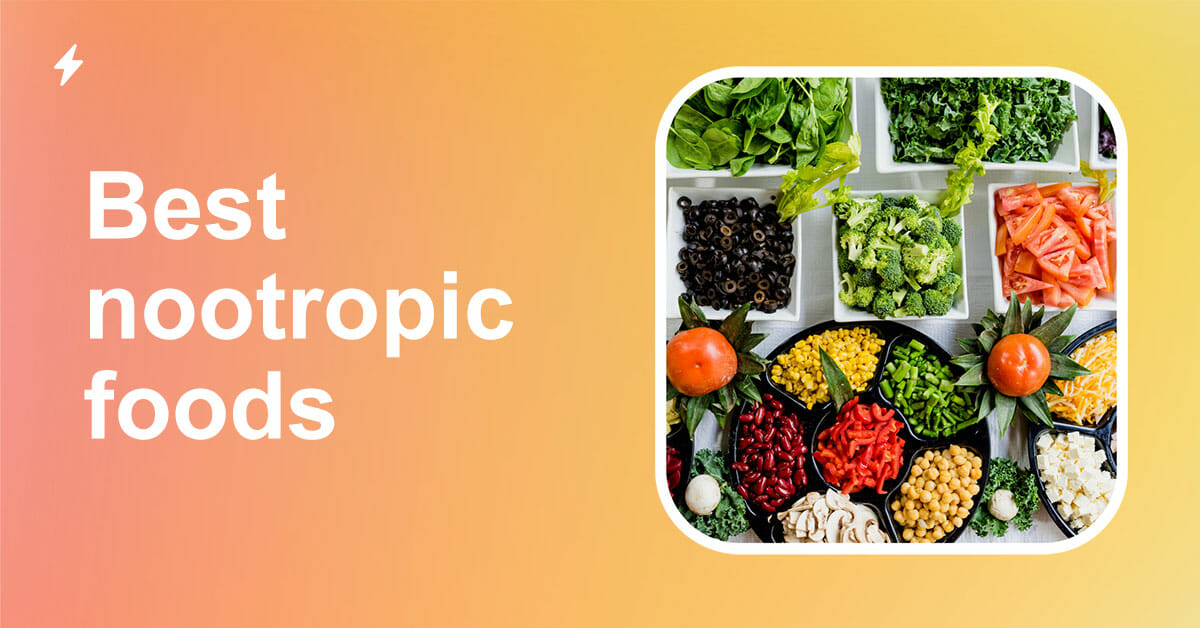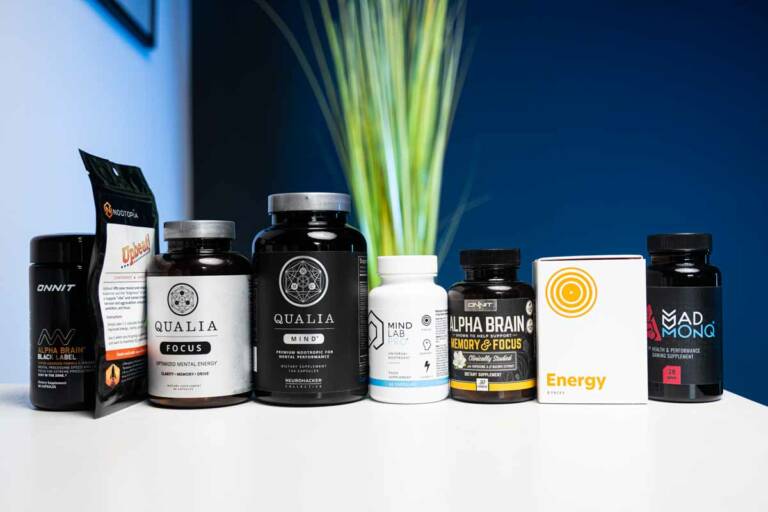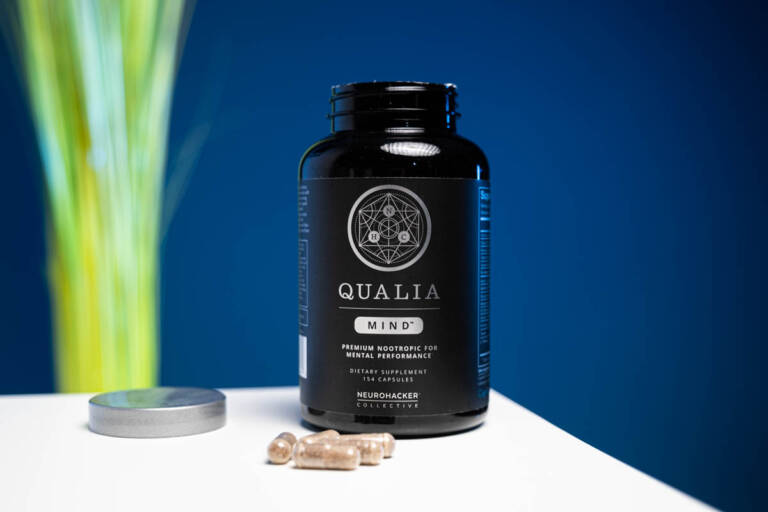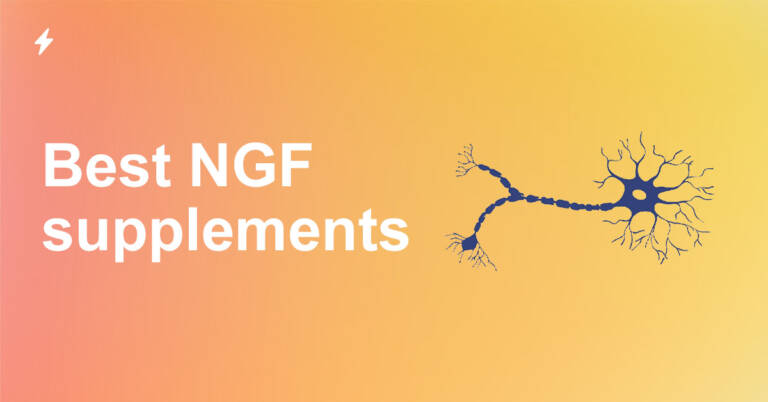Looking to optimize your brain or simply want to keep your brain as healthy as possible for as long as possible? It may be time to consider adding nootropic foods to your diet.

While nootropic supplements have their place, nootropic foods play a key role in optimizing your brain. Think about it. Your brain is the command center of your body. As the chief commander, it’s in charge of many functions including the following:
- Regulating your breathing
- Allowing you to think and feel
- Your heart rate
- Processing and remembering information
- Regulating sleep cycle
- Motor skills
As you can imagine, the foods you feed (or don’t feed) your brain directly affect all the different functions your brain is involved in. This is why nootropic foods play a huge role in your overall brain health.
Whether you want to prevent memory loss as you age, focus better, or improve overall brain function, nootropic foods can do all that and more.
Curious to learn what these foods are? Read on!
Nootropic Rich Foods
When most of us think about peak mental performance, the kitchen may not be the first thing that comes to mind. But this is exactly where your journey to optimal brain health and peak mental performance starts.
Let’s take a look at nootropic-rich foods that you should add to your diet. As you will see, many of the best brain foods also happen to be the same foods that protect your heart and blood vessels. Win-win? You bet!
Broccoli Sprouts
If you’re looking for the ultimate brain food, look no further than broccoli sprouts. Not to be confused with full-size broccoli (!), broccoli sprouts come from sprouting broccoli seeds and take 3-4 days to grow into shoots.
These tiny broccoli shoots are special as they contain 10-100 times more glucoraphanin – a power compound– than full-size broccoli. To understand how this is important, let’s learn a little about the science.
Firstly, chewing broccoli sprouts forms the enzyme called myrosinase. In turn, this enzyme activates sulforaphane: another powerful compound. [*]
Broccoli sprouts that are 3-4 days old have high concentrations of sulforaphane. Sulforaphane is also key for brain function and helps with working memory.
Unlike many compounds, sulforaphane can cross the blood-brain barrier. [*] By crossing this typically hard-to-pass barrier, sulforaphane can help reduce the effects of toxins, and protect the brain.
Another function of sulforaphane is its ability to act as a powerful NRF2 activator. NRF2 is one of the most important biological pathways in the human body.
The activation of NRF2 affects the expression of more than 200 genes including anti-inflammatory and antioxidant genes. [*]
There are many compounds in food that activate the NRF2 pathway, but the most powerful activator of NRF2 is, you guessed it, sulforaphane. Sulforaphane is more bioavailable than other NRF2 activators as it can reach the bloodstream. [*]
Sulforaphane can also protect your brain from oxidative stress which can lead to diseases such as Alzheimer’s and Parkinson’s. [*]
Nootropic foods like broccoli sprouts are versatile and easy to add to your diet. Go ahead and make your brain smile!
Green Tea
Thinking of ways to improve memory? A simple cup of tea may hold the secret. More than a hot beverage, green tea contains powerful compounds that give it its medicinal properties.
Green tea is rich in important compounds including L-Theanine, and catechin. For example, green tea contains six types of catechins, and the most potent of these antioxidants is EGCG.
EGCG and other catechins in green tea have powerful health-protective effects against many diseases including:
Drinking green tea as part of a healthy diet is a great way to enhance cognitive function and improve memory function. [*]
For example, a study in Japan found that elderly adults who drank green tea had a lower incidence of cognitive decline compared to those who didn’t.
That’s not all. The study also found it’s green tea, not coffee or black tea, that’s associated with reduced cognitive decline. [*] Sorry, coffee lovers!
If you were looking for more excuses to take tea breaks, drinking green tea will give you plenty of that.
Turmeric
Our list of nootropic foods wouldn’t be complete without turmeric; the miracle herb. If you don’t know about this super herb, grab a seat (and a cup of green tea?) to learn about its amazing health benefits.
The most bioactive compound of turmeric is curcumin: the strong antioxidant that gives turmeric its yellow color. It’s also what gives curry its distinctive color. That’s all and well, but what are its benefits exactly?
Research shows that the polyphenol curcumin, found in turmeric, can improve cognitive function. For example, a study of elderly South Asian participants looked at the consumption of curry, which contains turmeric.
Researchers found that those who frequently consumed curry had improved cognitive function compared to those who rarely did. [*] It’s believed that high consumption of turmeric is also the reason why fewer people are diagnosed with Alzheimer’s in countries like India.
In one long-term study, adults without Alzheimer’s took a bioavailable form of curcumin Theracurmin® twice a day. The double-blind placebo trial found that this improved working memory, mood, and sustained attention. [*]
Whether you want to improve brain function, grow new brain cells, or boost cognitive performance, turmeric has a lot to offer.
Algae
Did you know that about 60% of your brain is made of fat? Did you also know that about half of that fat is comprised of omega-3 fatty acids? [*] Omega-3 fatty acids play a huge role in building brain and nerve cells. [*]
Two types of omega-3 fats are the most important for our brain. These are eicosapentaenoic (EPA) and docosahexaenoic acid (DHA). Both of these omega-3s have been shown to benefit metabolic and neurological diseases.
DHA, for example, is the building block of tissue in the brain and has been shown to improve short and long-term memory. [*]
How does this work exactly? DHA can reduce neuroinflammation: the chronic inflammation of the central nervous system.
Since your brain can’t make these essential fats, you have to get your omega-3s from food or supplementation. Fatty fish or algae oil are the two most common ways to get your omega-3s.
The healthiest and major source of omega-3s is algae or algae oil. Usually, fish consume algae, convert them into fatty acids, and store them, so when you eat fish, you also get omega-3s. But there are 2 major issues with eating fish – ocean pollution and sustainability. So, why not get your omega 3-s directly from the source and skip the fish?
Seaweed, for example, is a type of algae that has been used for centuries, especially in the blue zones around the world. It is rich not only in omega 3-s but also in other crucial nutrients for our health, such as calcium, iron, magnesium, and iodine.
While omega-3 fatty acid consumption is vital for everyone, it’s particularly important for the elderly with memory loss issues. This is why DHA plays a significant role in improving neurodegenerative diseases, including Alzheimer’s – the most common type of dementia. [*]
Having a lower omega-3 index is linked to increasing the risk of many physical and brain-related issues, including the following: [*]
- Reduced brain volume
- Impaired cognition
- Accelerated progression of dementia
- Ischemic stroke
- Total mortality
If you’re looking for nootropic foods that grow new brain cells or increase brain power, then seaweed or algae-based omega-3 supplements are excellent choices.
Green Leafy Vegetables
Growing up, many of us have heard “eat your greens” more times than we were able to count. It turns out, our parents (and grandparents) were right! Leafy greens such as kale, spinach, romaine lettuce, collard greens, bok choy, and Swiss chard are rich in important brain-healthy nutrients.
These green vegetables have been shown to reduce the risk of mental decline, high blood pressure, heart disease, and more. [*] As nutrition powerhouses, leafy greens are important natural foods for improved cognitive function.
Consider this study. Researchers found that those who ate the leafiest greens each day had slower rates of cognitive decline compared to those who didn’t. [*]
Green leafy vegetables contain high levels of folate, a naturally occurring form of vitamin B9. What does that mean for brain health? Well, B vitamins facilitate the production of neurotransmitters.
As chemicals that transfer messages from the brain to the rest of the body, neurotransmitters are involved in many functions including the following:
- Improve mood
- Allow you to move your limbs
- Keep your heart beating
- Manage pain
- Regulate appetite
- Promote healthy sleep cycles
In short, neurotransmitters are chemical messengers our bodies can’t function without. As a B vitamin, folate is key for working memory and supports cognitive functions.
According to studies, having low blood levels of folate is linked with poor cognitive functioning. That’s not all. In older adults, this is also linked to an increased risk of dementia. [*]
In other studies, researchers found that even low but “normal” blood folate levels were linked to an increased risk of cognitive impairment. [*]
Note: Folate shouldn’t be confused with folic acid; the synthetic form of vitamin B9.
Dark Chocolate
When you think of nootropic foods, functional foods may come to mind. But what about dark chocolate? Well, let’s just say that you have plenty of reasons to indulge in your guilty pleasure!
How does dark chocolate help with cognitive functions? Dark chocolate contains 50-90% cocoa solids. Cocoa is one of the richest sources of polyphenols. In particular, it’s rich in flavanols, which have powerful anti-inflammatory and antioxidant properties.
Flavanols are a compound naturally found in many fruits and veggies and have powerful health benefits. But let’s take a close look at cocoa flavanols: found in cocoa beans.
One of the functions of cocoa flavanols is to help the body maintain healthy amounts of nitric oxide. Why is this important? Nitric oxide helps relax arterial walls, which is important for healthy blood flow from head to toe. [*]
As you may know, healthy circulation of both oxygen and nutrients support brain health. Since cocoa flavanols increase blood flow to the brain, studies show that in healthy adults, this compound can reverse age-related memory decline. [*]
In other studies, the neuroprotective effects are shown to influence cognitive performance and enhance brain function. [*] [*]
Dark chocolate is the ultimate sweet treat that can help with optimal brain function, and give you some needed brainpower.
Eggs
In addition to being nootropic foods, eggs are also the ultimate fast food, and they’re also easy to make and versatile.
Eggs are nutrient-rich – for example, they are rich in many vitamins, including folate (vitamin B9) and iodine, omega-3 fatty acids, iron, as well as phosphorus – all-important nutrients that support overall health. [*] [*]
Eggs also contain a compound called choline. Egg yolks contain some of the most concentrated choline sources. Choline is vital for proper signaling at neuronal membranes, and higher intake is known to improve memory and mental function. [*]
However, there are many downsides to egg consumption. First, consuming choline from animal products, like eggs, can lead to different health problems, including cardiovascular issues. [*] Saturated fat has also been found to increase the risk of cardiovascular diseases, Alzheimer’s disease, and dementia. [*][*] Around 60% of calories in eggs are from fat which is mainly saturated.
In general, we don’t recommend frequent egg consumption because of the mentioned downsides. Also, there are many great plant-based sources of all the needed vitamins, omega-3 fatty acids, iron, and choline, such as soybeans, nuts, potatoes, beans, grains, and seeds.
Coffee
You’re probably drinking coffee while reading this, right? If you’re familiar with nootropics, you already know that your morning cup of coffee does more than help with brain fog. When consumed in moderation, coffee can offer many health benefits for overall brain health.
Thanks to its hundreds of bioactive compounds, including caffeine, coffee affects the central nervous system.
Some studies show that coffee protects the brain against cognitive impairment, and improve thinking skills. [*] Others show the link between coffee consumption and decreased risk of developing Alzheimer’s. [*]
But it’s not only Alzheimer’s. Studies show the benefits of coffee for conditions like multiple sclerosis (MS). For instance, coffee and caffeine could have a significant impact on disease course. [*]
Results from two independent studies also show that coffee is associated with decreased MS risk. [*]
Extra-Virgin Olive Oil
A staple of the Mediterranean diet, the health benefits of high-quality olive oil are a no-brainer. This legendary oil can reduce the risk of diabetes, prevent heart disease, and boost the immune system, to name a few. [*] [*] [*]
If you’re familiar with the Mediterranean diet and its people, you may already know that they rarely suffer from depression or brain disorders such as Alzheimer’s. Studies confirm this, too.
Take a mouse model in 2017 as an example. The study revealed that mice fed a diet rich in extra-virgin olive oil were far less likely to develop Alzheimer’s compared to mice on a regular diet. [*]
The researchers noted that extra virgin olive oil reduced classic markers of Alzheimer’s. Wondering what these markers are? The formation of amyloid-beta plaques and neurofibrillary tangles in the brain.
This is thanks to oleocanthal – the powerful antioxidant that makes olive oil particularly beneficial for the brain. The researchers also found that consuming the oil protects learning and memory ability. [*]
In another mice study in 2019, researchers found that extra-virgin olive oil was able to restore blood-brain barrier function and reduce neuroinflammation. Unsurprisingly, they also found that this helped reduce or stop the progression of Alzheimer’s. [*]
Whether you’re worried about memory loss or simply want to enhance your memory, then extra-virgin olive oil is one of the best nootropic foods out there.
Walnuts
Walnuts don’t look like a human brain for no reason. If you’re looking for nootropic foods that promote long-term brain health then walnuts should be part of your daily snacks.
Walnuts are rich in omega-3 fatty acids. And studies show that consuming walnuts lowers anxiety while improving learning and memory. [*]
How does this work? Consider the lipids content in the brain. Lipids are a type of fat that we can’t produce on our own. Omega-3s are essential fatty acids that are important for the lipids that make up our brain cell membranes. [*]
These play a big role in different brain functions. In the past, lipids were largely overlooked in Alzheimer’s disease. But it’s now known that brain cell membranes play a huge role in the progression of Alzheimer’s.
Rich in nutrients such as vitamin E, polyphenols, and polyunsaturated fat, other studies show that walnuts can help reduce inflammation and oxidative damage in the brain. [*]
Some studies also show a clear link between the consumption of walnuts and more flexibility, better memory, and faster processing speed – all a sign of optimal brain health. [*]
Blueberries
These fruits may be tiny but their health benefits for brain function are huge. Blueberries are rich in antioxidants which can protect the brain from free radical damage. In turn, this can promote healthy aging. [*]
Blueberries contain flavonoids – a large class of powerful phytochemicals. These are found in fruits, veggies, and Ayurvedic botanicals. Thanks to their powerful anti-inflammatory and antioxidant properties, flavonoids help reduce the risk of cognitive decline. [*]
But blueberries are more than nootropic foods that are beneficial for preventing memory loss or age-related cognitive decline. A study of 7-10-year-olds who consumed a drink containing flavonoid-rich wild blueberries found promising results. [*]
Compared to the children in the placebo group, the kids who consumed blueberry drink had 9% quicker reaction times on the test – without sacrificing accuracy.
But here’s what’s fascinating. As the tests got harder, the kids’ reaction time and accuracy became more noticeable – showing that blueberries boost memory and brain power.
Another study in 2019 found that blueberries can “improve delayed memory and cognitive function in children, healthy older adults, and adults with some cognitive impairment.” [*]
Verdict
Nootropic foods can play a huge role in helping you stay focused, enhance memory, grow new brain cells, promote healthy neuronal membranes, and perform at peak efficiency.
The great thing about nootropic foods is that you can easily make them part of your diet. You can snack on walnuts or blueberries, add turmeric to some of your favorite recipes, or bake delicious desserts with dark chocolate!
Remember – you can also take nootropic supplements as they contain some or many of the compounds found in nootropic foods.






